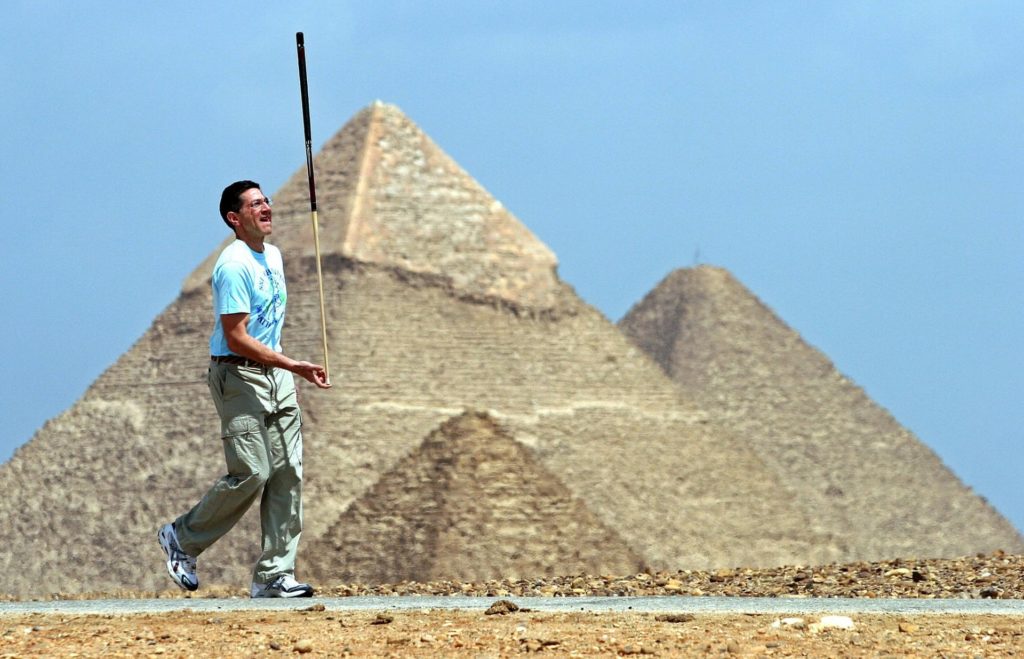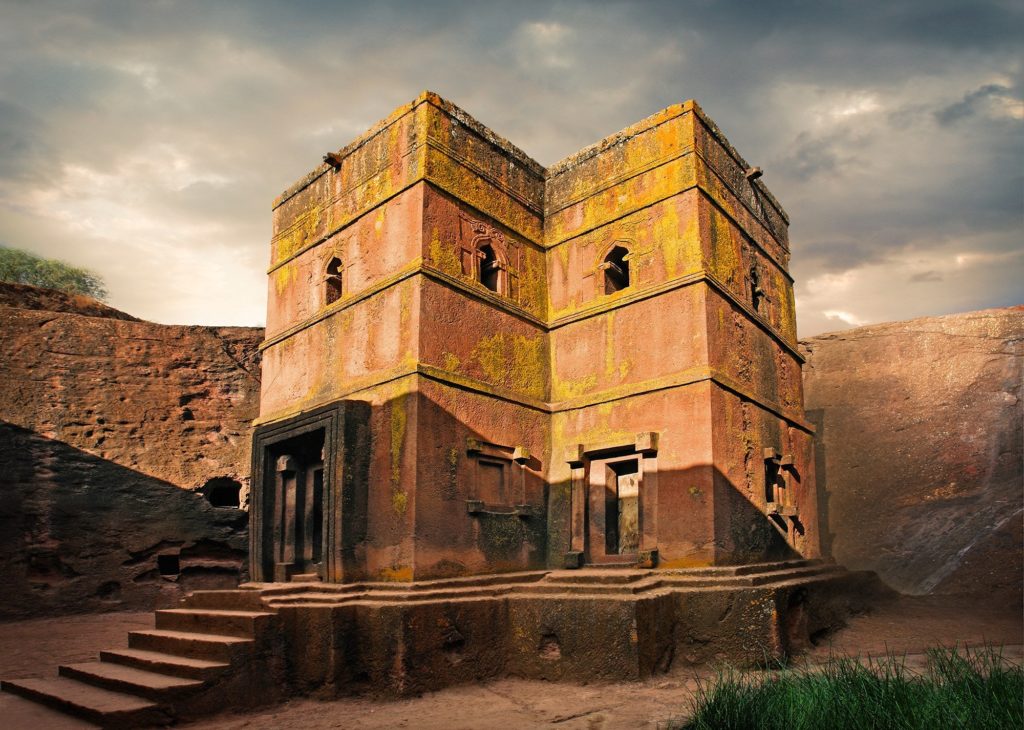Picture: The exterior of Saint George church Photo: Getty Images
Ashrita Furman is not someone people would immediately recognize, but he is the champion Guinness World Record-holder. He has set over 700 records since 1979. Many of these seem like dreamt-up oddities. Ashrita often travels to World Heritage sites to use them as backdrop for his stunts, which include completing the fastest mile on a kangaroo ball atop the Great Wall of China and climbing to the highest elevation on stilts at Macchu Pichu.

Beyond the longest balancing of a pool cue on one finger by the Pyramids of Giza, Ashrita has not set many records in Africa. That’s because there are so few World Heritage sites on the continent compared to others, due in part to the nomination process’ stringent criteria.
World Heritage’s origins began with the UNESCO convention in 1972 determining to preserve and celebrate the best of the best monuments and protected areas. Applying the term ‘Outstanding Universal Value,’ candidate sites must have “cultural and/or natural significance which is so exceptional as to transcend national boundaries and to be of common importance for present and future generations of all humanity.”
The first twelve World Heritage sites were nominated in 1978, including three from Africa: Ethiopia’s Simien National Park and the Rock-Hewn Churches in Lalibela, and Senegal’s Island of Gorée. Despite this seemingly strong start, of the 1121 total World Heritage Sites, there are currently only 129 in Africa. This 12% representation is considered disproportionate because of the unique histories, cultures and biodiversity across the continent.
The key questions here are: what are the causes for this underrepresentation and why is World Heritage important for African nations’ tourism?
For many countries, staging a World Heritage nomination is a lengthy, complicated, and expensive process. Technical and professional skills, reliable historical records, and architectural renderings are not often readily available nor up to date. On the rare occasions that a site has been nominated, national governments find themselves in a bind to ensure that necessary measures are used to protect these venues.

That being said, sites capable of meeting the strenuous requirements receive the mantle of a globally recognized brand. For African countries trying to establish and nurture their emerging tourism industries, World Heritage is a significant endorsement to latch onto and heavily market as a national symbol. Think of India’s Taj Mahal, Britain’s Big Ben, and Tanzania’s Mount Kilimanjaro.
Thankfully, headway to increase Africa’s List presence is now receiving support from the UNESCO-affiliated African World Heritage Fund. There is even an annual African World Heritage Day (May 5th) to celebrate the growing recognition of continental natural and cultural attributes.
If African countries are up to the nomination and maintenance challenges, World Heritage status could prove beneficial to their tourism profile and growth in the long term. With any luck, Ashrita will be jumping, bouncing or balancing past your new African destinations in the near future.

Author: Fergus Maclaren
Director of International Relations and Knowledge Management
Global Economic Institute for Africa








